Aliens, zombies, a headless chicken and William Shatner: the world of Alexandre O. Philippe
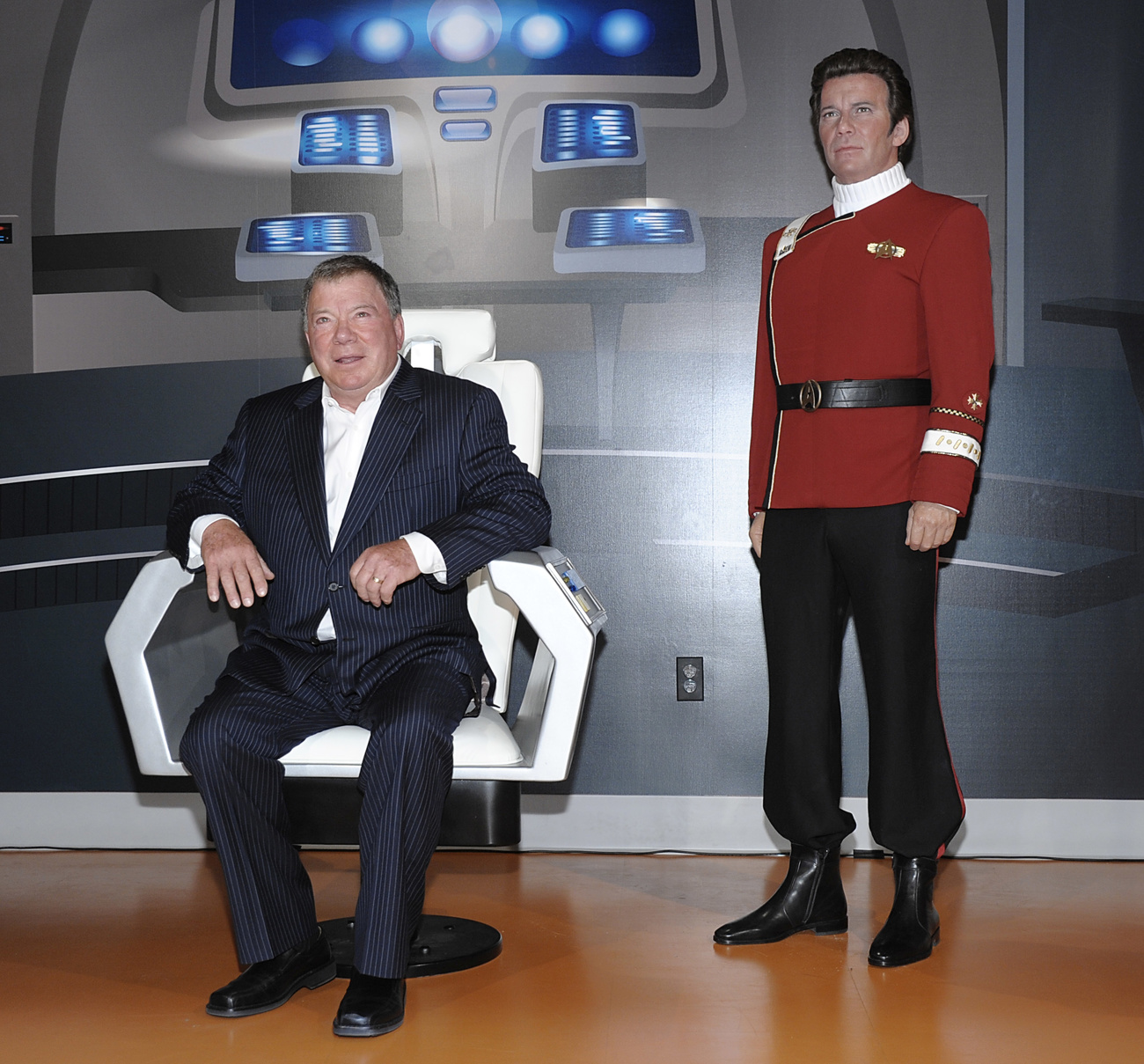
Alexandre O. Philippe is probably the least known Swiss filmmaker in Switzerland, but he is a manic dissector of American pop culture. At the latest Karlovy Vary Film Festival in the Czech Republic, he talked about his latest documentary on the legendary actor William Shatner – the original Captain Kirk.
How did a young movie geek from Lausanne end up on Hollywood’s peripheries, deconstructing its obsessions in his documentaries?
That’s the question that most readily springs to mind when casting a glance over the filmography of Philippe, the man who has built a career as the cartographer of American pop culture and the fandoms that amass around its avatars.
Philippe’s inspiration runs deep in Hollywood culture. George Lucas and Star Wars, David Lynch, the Alien franchise or the shower scene in Alfred Hitchcock’s Psycho (1960). Other obsessions include Mike the Headless Chicken, who survived for 18 months after being decapitated in 1945, Star Trek fans fluent in Klingon, as well as zombie movies of all shapes and scales. In these works, Philippe takes as his starting point iconic figures who have, to differing degrees, attracted all-consuming fans and a multi-dimensional lore of their own.

Philippe’s latest documentary is on the Canadian actor William Shatner, one of pop culture’s longest-lasting, most committed, and most beloved ham actors, best known for playing Captain James T. Kirk in the original Star Trek series (1966-1969) and the seven subsequent movies that followed (1979-1994). Shatner is still going strong at 92 and has just recorded a new album of autobiographical songs.
“I guess he saw our film as his legacy project,” Philippe tells SWI swissinfo.ch in the Czech spa town of Karlovy Vary. This is where Philippe’s documentary You Can Call Me Bill is showing at the local film festival, after premiering at the South by Southwest festival in Austin, Texas.
“We sat down for three days of interviews; I didn’t experience any pushback from him. I had an idea of where I wanted to steer our conversations, but right away, in the first interview, he launched into a monologue about the death of his beloved dog, stumbling upon his dead body when he was a kid. It was so dark.”
Our interview takes place in an imposing conference room shut off from the public, where we were able to hear each other over the persistent chatter of voices, shuffle of footsteps, and clinking of glasses at the ubiquitous hotel bars scattered around the town. Philippe and I are sitting face-to-face in a pair of spongey, tall-backed, red swivel chairs not dissimilar to those in which Kirk and Spock, the two iconic Star Trek characters, sat on the bridge of the Starship Enterprise.
Philippe himself came of age among pop culture royalty of a different kind. As a teenager, he attended the prestigious Institut Florimont in Geneva, where his best friend was Edoardo Ponti, the son of Sophia Loren and renowned producer Carlo Ponti. Together, they would maniacally consume horror movies at sleepovers at Edoardo’s – on American VHS tapes acquired through family connections and otherwise unavailable in Switzerland.
“Spending my days with Edoardo there, we were basically surrounded by the idea of movies. Of stardom,” he says. “Skiing with Edoardo, with his mum — I was very lucky. Also because throughout those years we were simply watching so many movies. Talking movies.”
Philippe’s connections to Switzerland are quite tenuous. The only element close to home in his filmography is HR Giger, the Swiss artist behind the creature design in the original Alien and one of the central preoccupations of Philippe’s 2019 documentary Memory: The Origins of Alien.
Before he was 20, he left Switzerland to study Dramatic Writing at New York University (NYU). He was quickly drawn to the oddities embedded in the all-consuming culture of his new adopted country, making films about Magic Mike (the name given to the headless chicken), or the precise spot of tarmac in Dallas where a bullet blasted through US president John F. Kennedy’s head in 1963.
One gets the sense, from perusing his corpus of work and from Philippe’s polite but low-key responses to any questions about Switzerland, that his home country doesn’t hold the same mad allure as the United States and the mythos of Hollywood.
“I have always wanted to make a film about a Swiss subject, with Swiss support, but it hasn’t materialised yet”, he says. “And showing my films there… I’ve been to Sundance, Venice, London. Other big festivals. But Locarno in particular, which is a dream of mine, still eludes me. I just need the right film at the right time.”
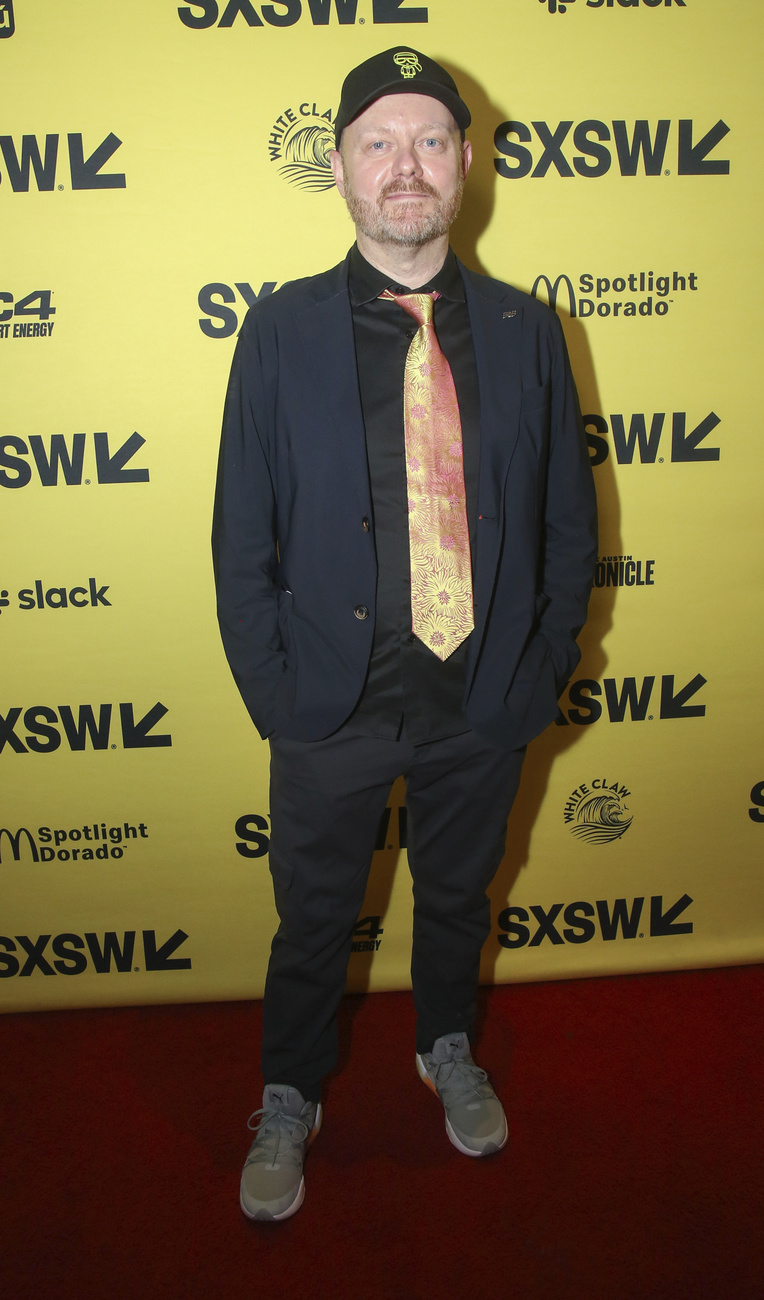
Does Philippe feel like he can see these massive cultural subjects, including Shatner, in a different way because of his distance as a Swiss in America?
“From an early age, I dreamed about America, about the image of America – whether true or false. And I believe all my movies benefit from that distance, from my being Swiss. No matter how integrated I am in America, I’ll always have that perspective on things. I saw most of these movies for the first time dubbed into French [in Lausanne and Geneva], after all.”
I put it to Philippe that his Shatner film is cut from a slightly different cloth to his other more omnivorous cultural dissections, since it is less concerned with the cultural detritus linked to Shatner’s name than with the particularities of the man himself.
We get the sense throughout the documentary that even Shatner’s honesty is itself a performance. “He has been acting since he was six years old. That’s almost 90 years of performing, right? Of course he is, in some way, always performing,” Philippe says.
“I found myself faced with an opportunity to show William Shatner in a different light to what audiences might have become accustomed to. He’s a very introspective, thoughtful person. But he has also lived a remarkable, full life. He’s been to space. He’s gone swimming with sharks. The whole deal. So he has lessons for us. He has teachings.”
Was there a specific moment he remembers first encountering the actor? “Well, [Shatner has] been part of my psyche since I was a kid. And the commercials he appeared in [for Priceline, an online travel agency] were big for years, they were everywhere. So he’s an ubiquitous presence in the States, even now.”
Part of what makes You Can Call Me Bill interesting, besides Shatner’s own insights about his life or his enjoyable theatrics in talkshows, is this go-for-broke portrayal of Shatner. Philippe stuffs every cranny of this cinematic portrait with all of it: the ads, the crooning stage shows, the film clips (some of them, from lesser known works dug out of the archive, are startling in their subversion of Shatner’s image), the Star Trek remixes, the public appearances at conventions and on talk shows, the footage of his trip to space on Jeff Bezos’s Blue Origin rocket.
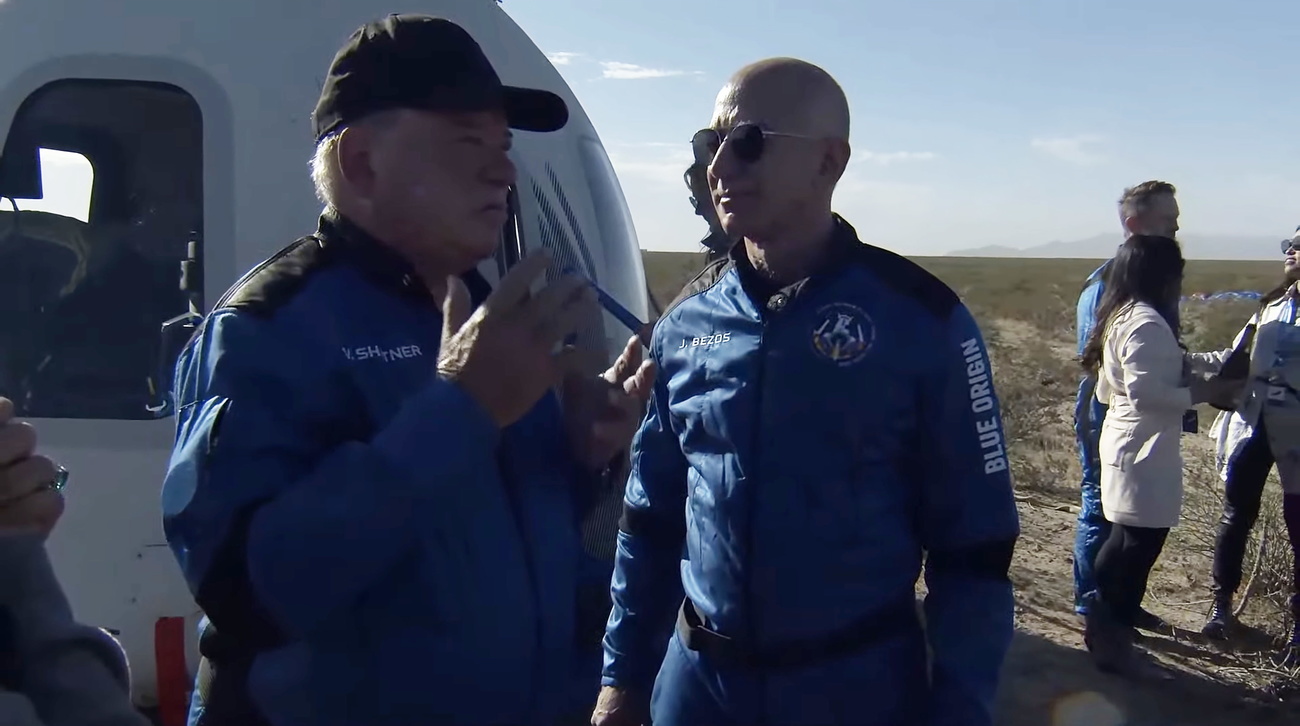
At the core of the documentary though is the sadness, the loneliness, the perhaps surprising melancholy that is, along with his corniness and joviality, at the core of Shatner’s cultural presence. This is reflected in the breakdown of You Can Call Me Bill into metaphysically imbued chapters.
The defining moment, in the film and in the collective imagination as concerns Shatner, is his trip to space on Blue Origin. After the rocket touched back down on Earth, he was, unlike his fellow travellers, sullen, withdrawn, disturbed by what he encountered. All around, the other engineers, astronauts and Bezos himself were celebrating, popping champagne bottles, grinning from ear to ear.
“What moved Bill so much is that he leaves Planet Earth, looks around at the darkness, and it just looks like death to him. Death is a big presence in his life, and it’s a big presence in our film,” Philippe says. “And so it makes for a very different kind of film about William Shatner. It’s certainly not the film about William Shatner that one would expect to see. And I’m proud of that.”
Edited by Virginie Mangin

In compliance with the JTI standards
More: SWI swissinfo.ch certified by the Journalism Trust Initiative








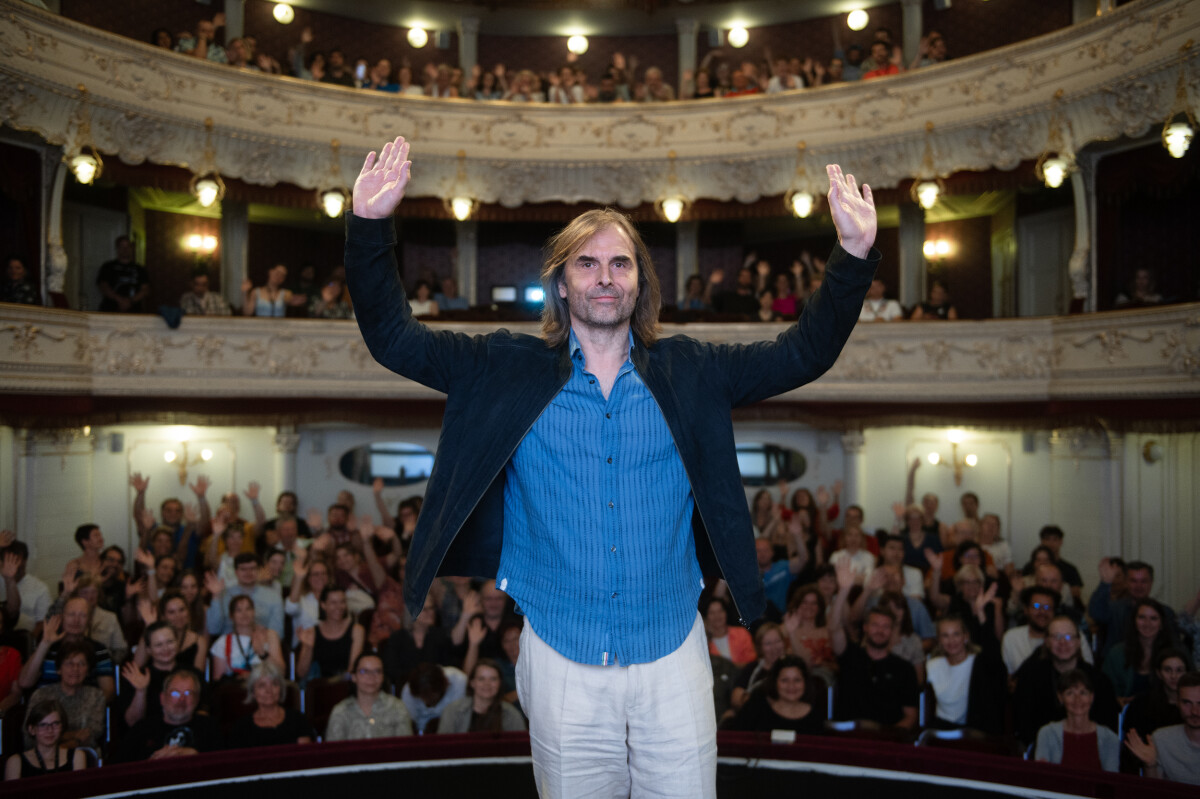

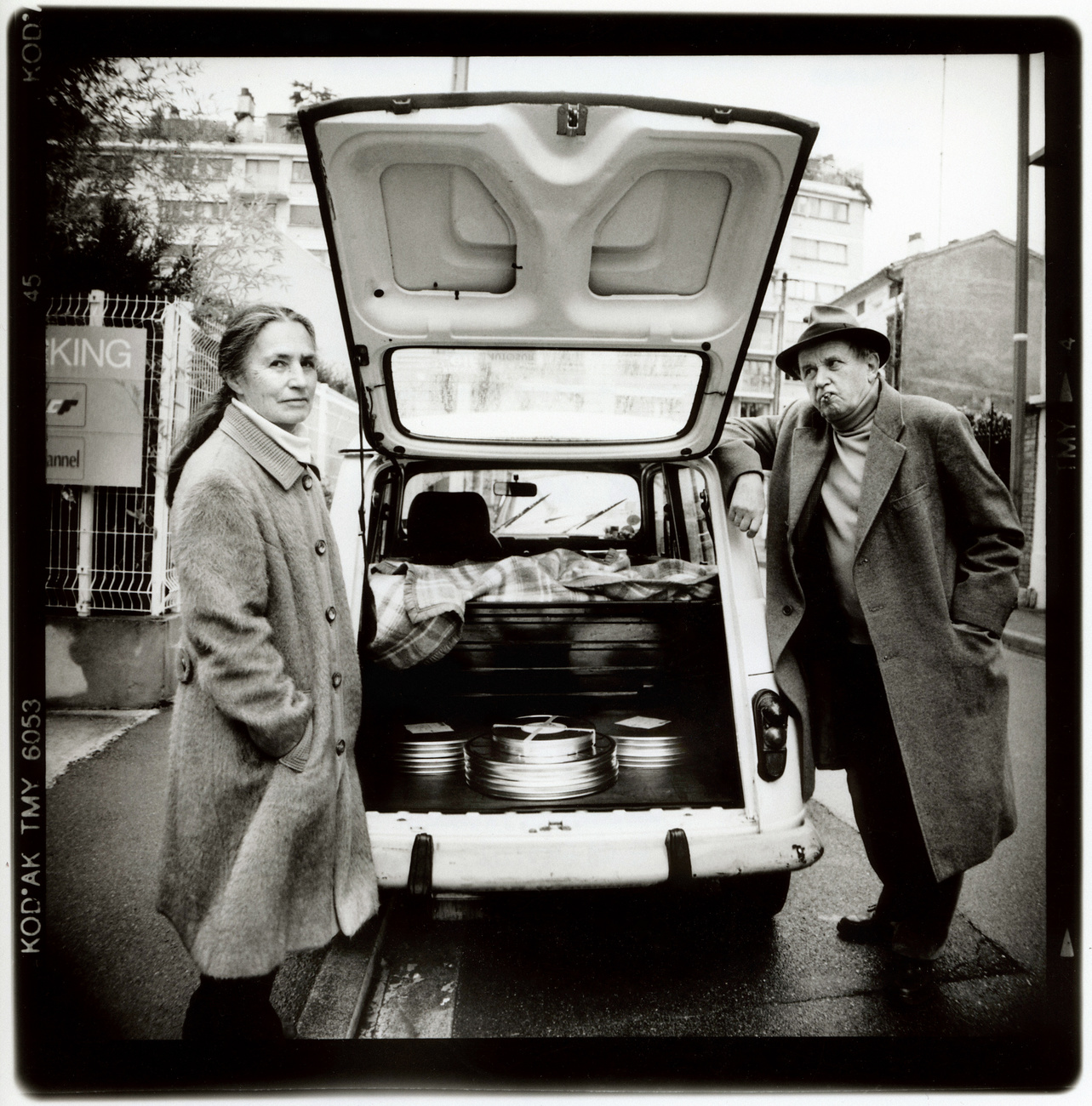
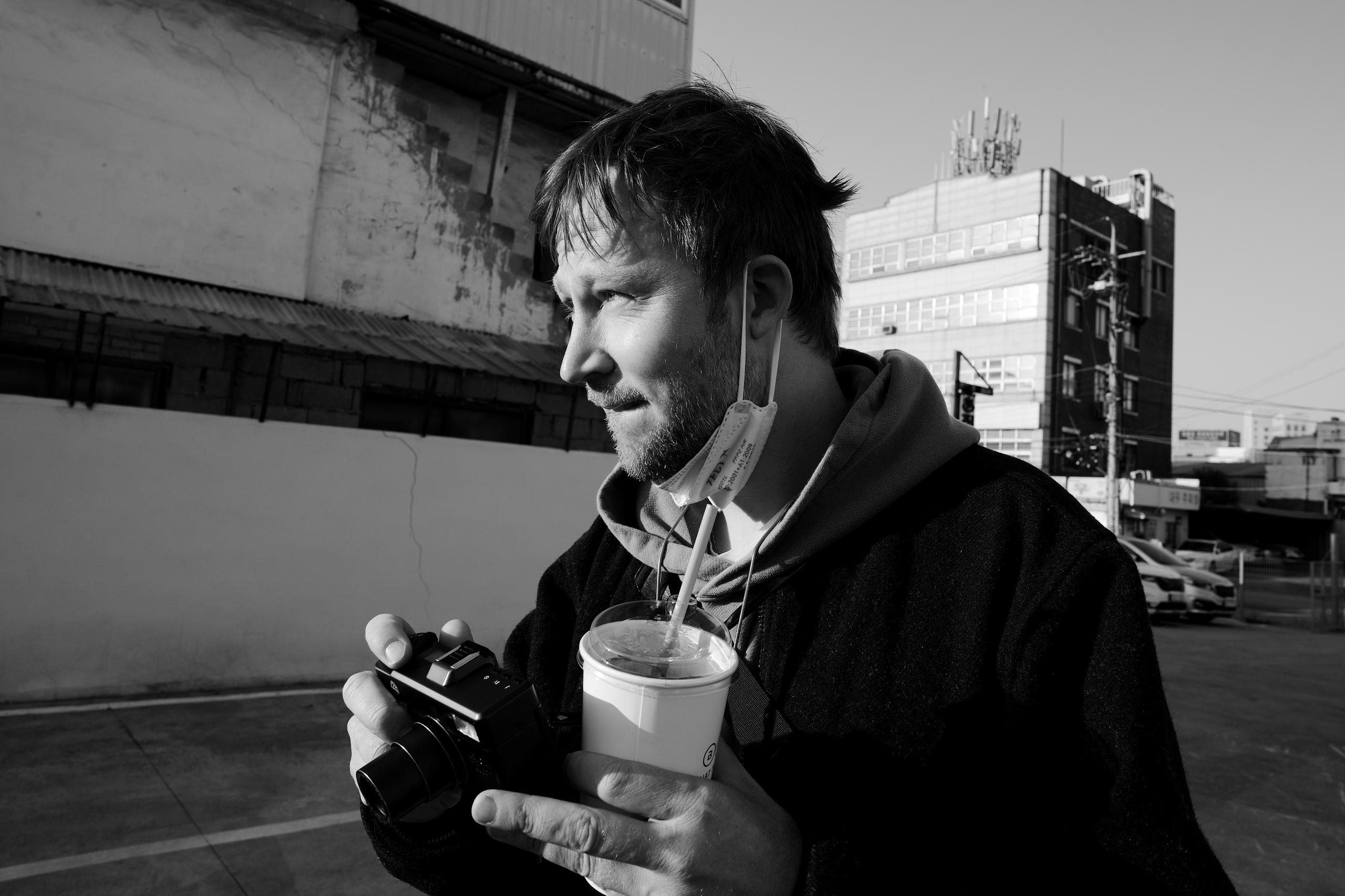
You can find an overview of ongoing debates with our journalists here . Please join us!
If you want to start a conversation about a topic raised in this article or want to report factual errors, email us at english@swissinfo.ch.